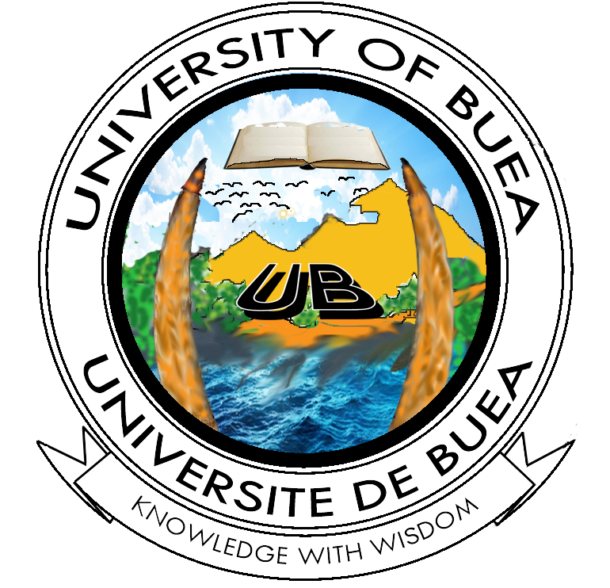Duration: 3 years
Fee Paying: No
Admission Requirements
Candidates must have passed at least 2 GCE Advanced Level subjects, one in Biology, Botany, Zoology or Human Biology, and one in Chemistry. The Baccalaureate series C and D are also acceptable. A pass in at least the Ordinary Level Mathematics or equivalent is mandatory.
Objectives
The Biochemistry degree programme trains biochemists with a modern view of the living world and its environment. It provides theoretical and practical training that enables the student to identify, isolate, purify, quantify and elucidate the structures of important bio-molecules from tissues and organs. A graduate in Biochemistry should understand, interpret and explain biochemical data that account for the complexity, diversity and unity of life forms, and assess the dynamic processes of the transformation of matter and energy in living cells. Emphasis is laid on fundamental principles governing heredity, genetic information transfer, expression and regulation; chemical basis of the origin of life and evolution. Attention is paid to applications of biochemical concepts to improve human and animal health, increase agricultural production, and enhance environmental management, service industries and biotechnology. A quantitative approach involving the use of chemical and physical principles is employed to explain underlying biological processes.
Graduation Requirements
The student is expected to pass all the core courses indicated in the table below as C or U. To make up the total number of credits to 180 required for graduation, the student can choose courses in the structured electives categories as he/she wishes and under the supervision of the Department.
Outcomes
- Production of knowledgeable and competent graduates with a thorough understanding of the basic principles of Pure and Applied Biochemistry who are also capable of applying such knowledge to a wide range of academic, health, industrial and environmental applications.
- Production of Biochemistry graduates who can identify, isolate, purify and elucidate the structures of biomolecules from various organisms.
- Provision of knowledge and skills that can enable graduates create jobs and/or pursue careers in the fields of biochemistry, molecular biology, bioinformatics, medicine, agriculture, biotechnology and/or other service industries.
- Production of internationally competitive graduates who can easily be accepted into postgraduate schools and laboratories worldwide.
Skills Acquired
- Quantitative and qualitative analytical skills of diverse forms of biomolecules.
- Skills to understand, interpret, and explain biochemical data and their transformations that account for the complexity and diversity of life.
- Practical skills that permit graduates to handle and manipulate biological specimens/biomolecules and samples for research and other practical applications in industry, medical diagnostics, and allied applications.
Employment Opportunities
The Biochemistry programme is conceived to graduate students who are competent, knowledgeable, and skilful and who can adapt to change. They can be employed in: food industries, the health sector, agriculture and animal production, research, teaching, biotechnology and related industries. They can also go into management and marketing (as sales representatives of chemical and pharmaceutical industries). The graduate will also be endowed with the capacity for self-employment and continued self-education.
Courses
Compulsory Courses
- BCH202: Biophysical Chemistry and Bioenergetics
- BCH301: Structural Biochemistry I
- BCH302: Metabolic Biochemistry I
- BCH303: Structural Biochemistry II
- BCH310: Genetics
- BCH401: Enzymology
- BCH404: Molecular Biology
- BCH405: Metabolic Biochemistry II
- BCH412: Introduction to Biotechnology and Bioinformatics
- BIO201: Cell biology
- BIO401: Biometry and Research methods
- CHM201: General Chemistry
- CHM244: General Organic Chemistry
- CHM343: Chemistry of Organic Compounds
- MAT211: Mathematical Methods
- MCB301: General Microbiology
- MCB402: Immunology
- PHY220: GeneralPHYsics
Elective Courses
- BCH311: Tissue and Organ Biochemistry
- BCH312: Nutritional Biochemistry
- BCH409: Supra-Molecular Assembles
- BCH410: Biochemical Methods II
- BCH414: Biochemical Pharmacology
- BCH416: Clinical Chemistry
- BCH498: Research Project in Biochemistry
- BIO301: General Ecology and Conservation
- BOT201: Lower Plants
- BOT202: Higher Plants
- BOT308: Principles of Taxonomy andPHYtography
- BOT401: Plant Anatomy and Histology
- BOT412: Principles and Methods in PlantPHYsiology
- CHM312: Analytical Methods in Chemistry
- CHM325: Inorganic Chemistry
- CHM402: Chemistry and the Environment
- CHM438: Chemical Thermodynamics
- CHM441: Organic Synthesis and Reaction Mechanisms
- MLT201: Human Biology - Anatomy and physiology
- MLT202: Human Pathology
- MLT301: Haematology
- MLT302: Endocrinology
- MLT401: Clinical Biochemistry and Analytical Chemistry
- MLT402: Basic Pharmacology and Pharmacological Biochemistry
- ZOO201: Invertebrate Zoology
- ZOO202: Vertebrate Zoology
- ZOO302: AnimalPHYsiology
- ZOO402: Animal Behaviour and Evolution
- ZOO405: General Parasitology
Language Requirements
- ENG101: Use of English I
- ENG102: Use of English II
- FRE101: Functional French I
- FRE102: Functional French II


